Automotive
/Home & Leisure
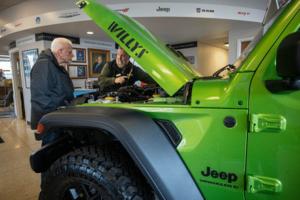
Stellantis dealers see hints of recovery after profits and sales plunged
Chrysler, Dodge, Jeep and Ram dealers were in open revolt against parent company Stellantis NV for much of last year.
Poor corporate decision-making had tanked sales, the retailers said, while a mishmash of overpriced vehicles piled up on their lots and their profits plummeted to Great Recession-era lows. They sent sharply worded letters and ...Read more
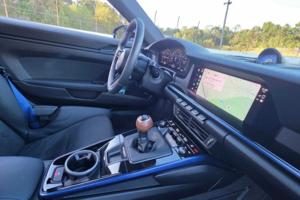
Auto review: What I want for Christmas -- Porsche 911T manual
BRASELTON, Ga. — The bad news is the manual transmission is an endangered species these days as emissions regulations and electric vehicles have shrunk the options for American enthusiasts. The good news? Americans looooove to row the gearbox compared to their foreign peers (40% of VW GTI sales have been manual, just 5% in Europe), and so ...Read more
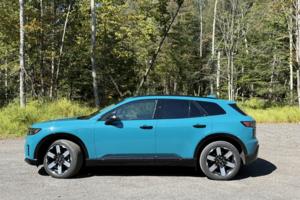
Auto review: 2025 Honda Prologue SUV is a win for EVs
Stacking up in Grasso’s Garage recently has been a slew of EV SUVs. From the EV9 by KIA and the newly redesigned fleet from Audi, EV’s are everywhere. As someone who is certain that vehicles should be hybrid’s and not fully electric, the Honda Prologues enters Grasso’s Garage and is changing my mind quickly.
The 2025 Honda Prologue ...Read more

Whither the 'hot hatch' in the age of electric motoring?
It’s noon, and I’m sitting in Jackson, Tennessee, a waypoint on Interstate 40 an hour east of Memphis. My husband calls and wants to know if I’ll be home in Indianapolis for dinner. I look at the Volkswagen GTI while knowing there are hours of challenging roads ahead.
“Yeah, I’ll be there,” I said. I threw my bags under the hatch, ...Read more
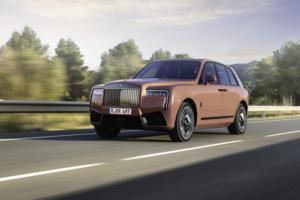
Larry Printz: The top 10 test drives of 2025
For many people, automobiles serve a purely utilitarian purpose. They are a means of transportation, a necessity, and little more than a recurring expense. Yet for most of us, they are far more than that. In their design, one glimpses human aspiration; in their performance, a promise of escape. Behind the wheel, anxieties are momentarily left ...Read more
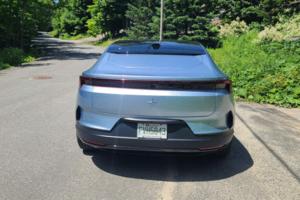
The best auto features of 2025
Automobiles are rolling department stores containing everything from electronics to music to tires to wardrobe fashion. Wardrobe fashion? Check out the stylish blue leather seats in the Cadillac Optiq.
This year brought more cool features to keep the shoppers coming.
One feature I didn’t care for? The warning gong — BEEP BEEP BEEP — in ...Read more

Waymo to update software across fleet after major power failure
Alphabet Inc.’s Waymo said it would strengthen its automated software to better handle power outages after its self-driving taxis froze and caused traffic jams during a major electricity failure last weekend in San Francisco.
The Waymo Driver system is programmed to handle dark traffic signals in the same manner as four-way stops, but a car ...Read more
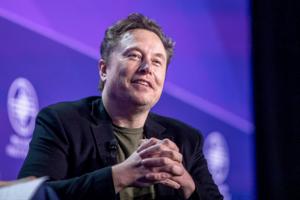
Musk 2018 Tesla pay plan reinstated after 7-year legal fight
Elon Musk won reinstatement of his 2018 pay package as chief executive of Tesla Inc., after the Delaware Supreme Court reversed some findings of a judge who said the billionaire improperly influenced board members who formulated the record-breaking corporate compensation package.
The high court Friday concluded the world’s richest person is ...Read more

Three fantasy rides with whiffs of nostalgia for celebration, travel and sleighing
We’ve worried enough this year, so let’s pretend money is no concern and fantasize about buying whatever we want … automotively speaking.
Whether you covet elegance, comfort for traveling, or sport for sleighing, one of these fantasies — with whiffs of nostalgia — should brighten your carpark this season.
For celebration: 2025 Rolls...Read more
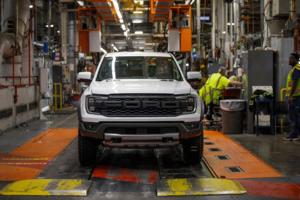
Ford's move to affordable trucks won't include Ranger PHEV, Super Duty
Ford Motor Co. is bringing more affordable trucks to the United States, but there are no plans to bring the plug-in hybrid and Super Duty variants of its midsize Ranger that it's betting on to expand market leadership in Europe, Australia and southeast Asia.
The Dearborn automaker this year introduced the models as it seeks to expand its share ...Read more
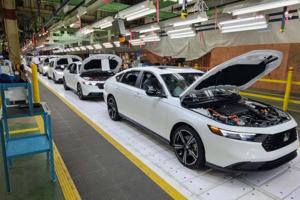
Honda Accord updated for a dying sedan market
For 2026, the Ohio-made Honda Accord gets mid-cycle updates after its 11th generation introduction in 2023. Those updates are minor compared to previous generations because the Accord — the second best-selling non-pickup truck in America just 11 years ago — has seen sales plummet by nearly 60% in a dying mid-size sedan market.
Accord is a ...Read more

Auto review: On the town in the sci-fi, low-mi Hyundai Ioniq 9 EV
DETROIT — The striking, three-row Hyundai Ioniq 9 is an avatar for the electric niche.
I flogged the Ioniq 9 all over Metro Detroit — the 300-mile, natural radius of an EV — as I helped chaperone a racquets tournament and performed daily chores. From its sci-fi, "Blade Runner" exterior to its posh white interior, the Ioniq is dressed to, ...Read more
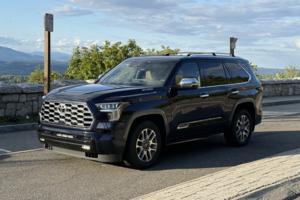
Auto review: 2025 Toyota Sequoia 1794 Hybrid moves everything with style
In today’s consumer market, buyers want appeal and comfort — it’s that easy. Car buyers look past their needs and focus on their wants. Well, in Grasso’s Garage this week, an $80K base price seven-passenger people mover, ready for the long haul but certainly in style, is just the ticket.
Our 2025 Toyota Sequoia 1794 Hybrid tester got a ...Read more
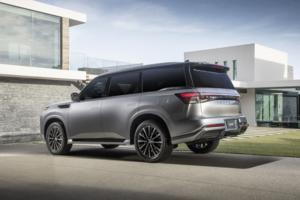
Auto review: 2026 Infiniti QX80 Autograph is a last taste of luxury before things get worse
The 2026 Infiniti QX80 Autograph is not a car. It’s actually large enough to be a new U.S. Territory.
Infiniti, Nissan’s attempt to be Lexus, which is Toyota’s attempt to be Mercedes-Benz, which is Germany’s attempt to prove they won the peace, has taken its biggest, boldest SUV and stapled the word Autograph on it. Which is fitting, ...Read more
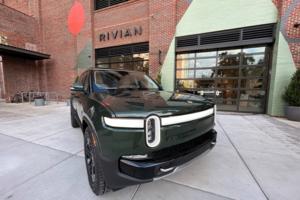
Rivian to help train next generation of engineers with Georgia universities
Electric vehicle startup Rivian announced Thursday five education partnerships and sponsorships across Georgia — all focused on technical training and emerging technologies.
The California-based company, which plans to build a $5 billion Georgia factory and has its East Coast headquarters in Atlanta, committed at least $330,000 to the ...Read more
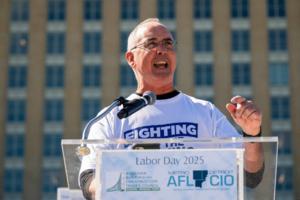
UAW shakes up top staff after text messages reveal retaliation scheme
United Auto Workers President Shawn Fain's chief of staff has resigned following evidence that he colluded with the union's compliance director to falsify allegations against Secretary-Treasurer Margaret Mock, whose departmental assignments will be restored, according to a report filed Thursday by the union's court-appointed monitor.
The UAW ...Read more
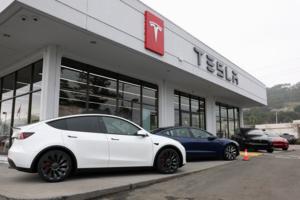
Tesla faces California sales halt over marketing of Autopilot
Tesla Inc.’s car sales in California are poised to be suspended for 30 days over marketing practices that allegedly mislead consumers about the automated-driving capabilities of its vehicles.
The California Department of Motor Vehicles said Tuesday the suspension won’t take effect for 90 days to give Tesla time to appeal or come into ...Read more
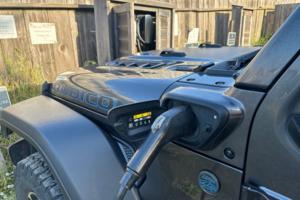
Jeep to recalled 4xe owners: 'Please accept our sincerest apologies'
Jeep's CEO on Tuesday apologized and promised $100 gift cards in a note to owners of the brand's plug-in hybrids, who have dealt with as many as three recalls over battery fire risk in the past two years.
Bob Broderdorf said most of the brand's Wrangler and Grand Cherokee 4xe hybrids aren't affected by the battery problems but acknowledged the ...Read more
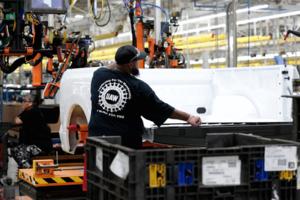
Ford to redeploy EV unit plants for gas, hybrid and energy storage products
In a major move away from electric vehicles, Ford Motor Co. will take a majority of $19.5 billion in special charges in the fourth quarter of 2025 as it restructures its Model e division to be profitable by 2029 and reutilizes EV plants for other applications.
The Dearborn, Michigan, automaker will focus on higher-return products and businesses...Read more
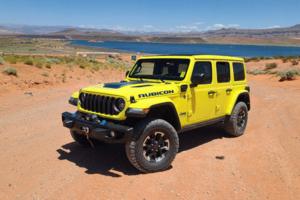
Jeep plug-in hybrid owners have 'trust issues' after latest recalls
Jeep's popular plug-in hybrids have been hit with multiple serious recalls in recent months, and owners — a loyal group who often trade tips and photos of their rigs online — are getting increasingly fed up.
First came an over-the-air software update glitch in mid-October that led to many Wrangler 4xe drivers suddenly losing power on the ...Read more






